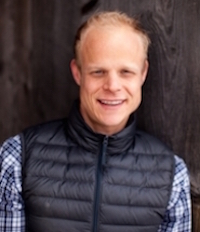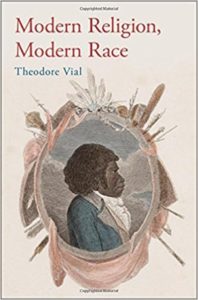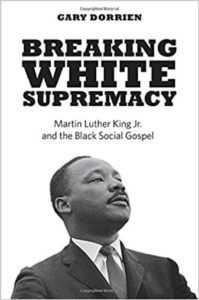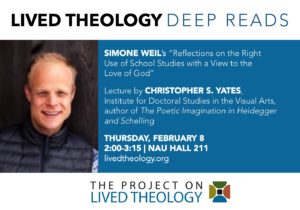 Examining the Theology of a Radical Witness
Examining the Theology of a Radical Witness
On February 8, Christopher Yates led a seminar discussion on Simone Weil. Using passages from Weil’s writing, Yates contemplated impressions of her life and ideas using the following seven guiding principles found in her work: devotion to intellectual honesty, the interplay between belief and certainty, proximity to unbelievers, divinely-inspired worldly order, susceptibility to false beauties, the love of neighbor, and obedience. For Weil, Yates argues, there is no separation between theological commitment and practices. The end game then is dedicating the highest form of our attention to God, turning from the idols of the world to redemption and righteousness through active prayer.
In his discussion of participating in God’s love for the world through neighbor relations, Yates expounds:
“If Simone Weil is correct… justice means the right relationships among all things. I think this relates to social justice, the active restoration of right relationships, because after all, what does the beauty of the world tell us? That it has a beautiful order that relates to the love of God. Now the beautiful ordering of social relationships is the task of justice. That is why she goes to work in a factory and goes on hunger strikes among other things to be an agent of justice, whereas charity is giving from a distance. Today, there’s a lot of ways to do this… Just as she doesn’t want us to approach the truth of God from a distance, a comfortable enlightenment distance, she doesn’t want us to approach the neighbor from a distance. So there’s a just way of thinking and a just way of living for Weil.”
Listen to the full lecture through its resource page here.
Christopher Yates is Assistant Professor of Philosophy, Aesthetics, and Art Theory at the Institute for Doctoral Studies in the Visual Arts and an Associate Fellow at the Institute for Advanced Studies in Culture.

 Understanding their Connection
Understanding their Connection
 On Simone Weil
On Simone Weil